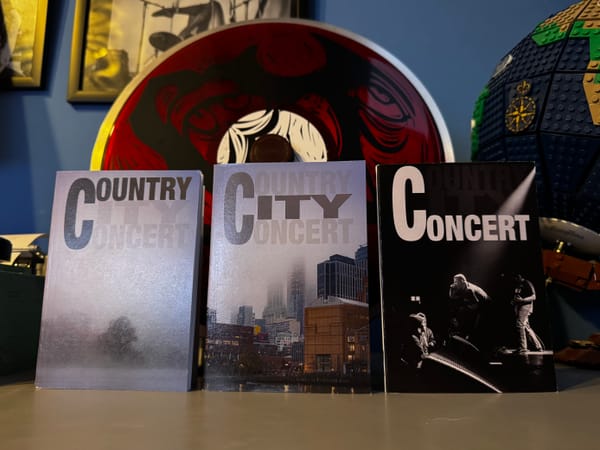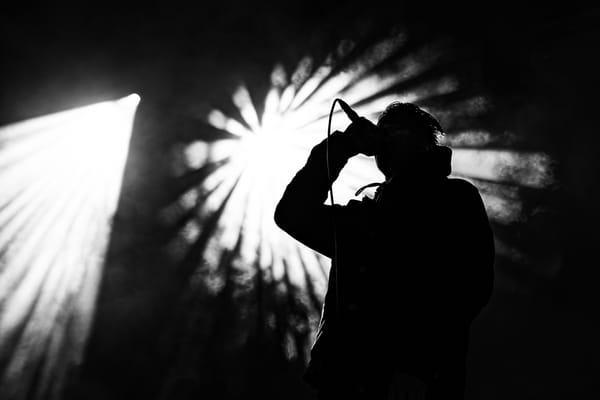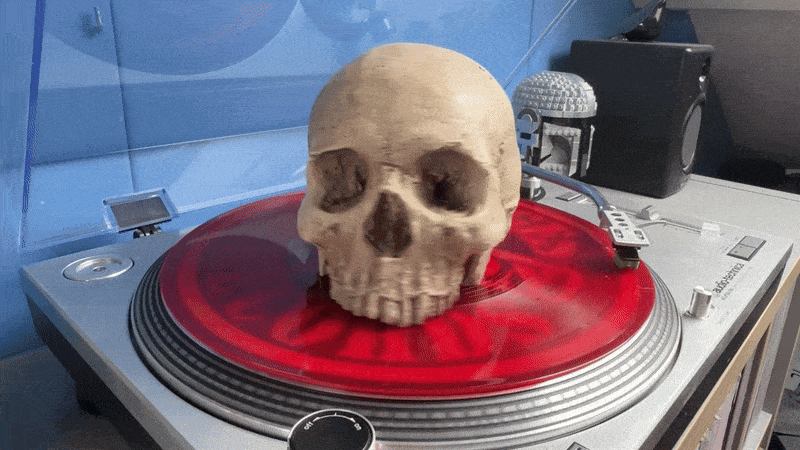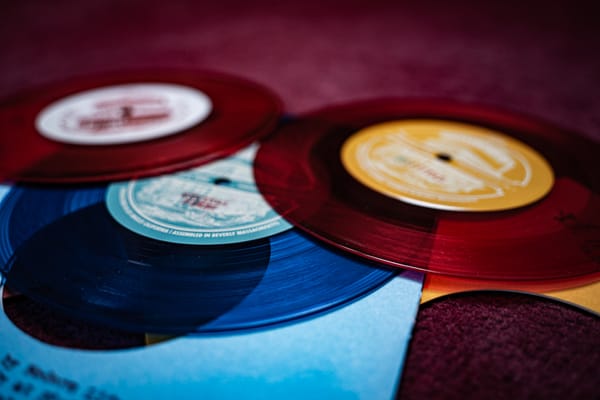Money Ruins Everything
On money, music and creative freedom
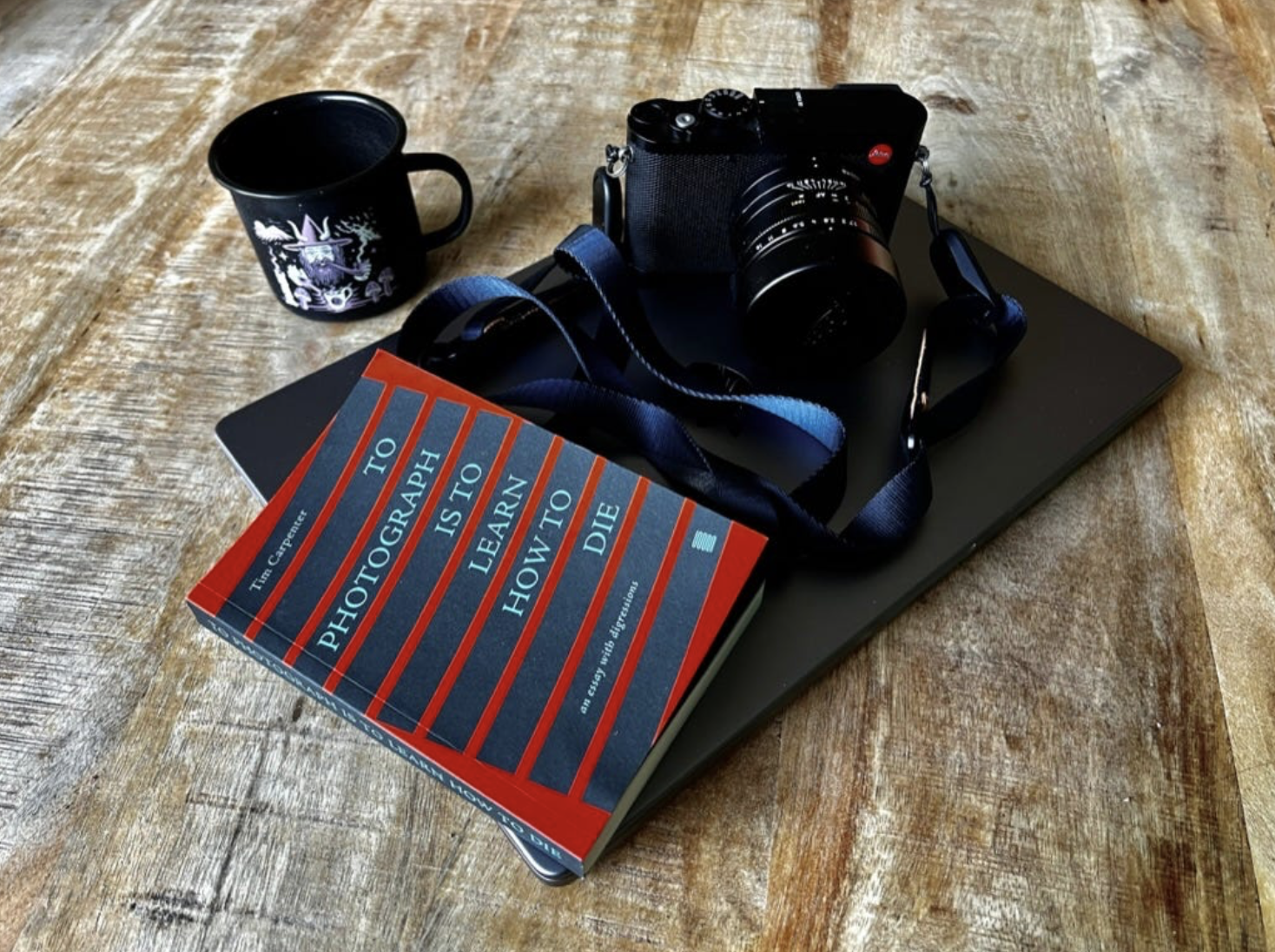
This issue is brought to you by a close brush with a mid-life crisis.
(Also, it’s related to punk music but it’s a bit of a lead-up to get there, so hold on.)
The concept of identity is a head-scratcher and it’s been keeping me busy, courtesy of… Mortality? Disgustingly cliche as it is, birthdays have a way of rubbing one’s nose in one’s (imminent, in the grand scheme of things) expiration.
Identity, of course, is an incredibly complicated thing to unwrap. Are we what we do? Or perhaps how we do things? Or is it shaped by how we were raised? Or does one of these lead into the other? Is it some inherent thing baked into us? Determinist biology?
Is our identity immutable? Are we doomed to be who we are? Or is time a factor? Or perhaps we are simply a collection of habits and preferences, shifting as we make our way through life?1
Lot of questions.
Going by Terror Management Theory’s rules (which is the name of the game around these parts), identity is really whatever we attach our self-worth to that gives us the ability to mentally deal with our own mortality. Generally, this means creating something that stands beyond us.
In the grand scheme of things, I prefer to think of our identities as the things we feel and do, though both combined are more than the sum of their parts.
But first, a little more background on where these questions have come from.
Value
From time to time, out of sheer, unadulterated boredom, I find myself browsing LinkedIn. This is a bad habit and one should avoid this service like the plague. The reason being that there are a lot of people on this particular service who have made their job their entire identity, a concept so foreign to me it might as well be alien.
My day job is not something I generally give too much attention to, unless asked. Though I might spend most of my waking hours doing it, it’s simply not something I feel so strongly about that it reaches into my evangelical tendencies. My job’s fine, it has its ups and downs, I have nice coworkers and it pays quite well, which in turn allows me to do a lot of things that I actually do think add up to who I am.
Writing, for one. Or photography. Creating something simply for the sake of creating it and not because there’s a pay check at the end of the task is immeasurably more satisfying than working a day job. It keeps the work pure, for lack of a better word.
There are two ways to arrive at professional creative work, the type that pays the rent. One is by aiming for a job that is enjoyable – for creatively inclined people, naturally. This is for people who cannot fathom a job with the single goal of productivity.
Fair play to them.
The other way is to be passionate about creative work and wanting to do it at all hours, and thus having to turn their passion into something that can provide a sustainable income.
To some, these might seem like the same thing, but while they are sides of the same coin, I hope the distinction is clear. The end point, however, is identical: unless you work at a very high level, capitalism intruding on creativity.
It’s understandable having to participate in our labour force by attaining a bearable job. It is what I did the first half of my professional life. As a journalist, I very much got to write a lot, which was a worthy endeavour, even if it was never exactly what I personally wanted to write. The result was a pleasant job that left me without any desire to explore creative writing outside of it. This started to grate.
One job later, the second path is now lies on the table, whether it’s acknowledged or not.
I’m pretty decent at writing. I’m pretty good at photography. The skill to turn these into paying jobs is there – as mentioned, I’ve done it before!
But going pro would mean either accepting having to be ordered around by a boss or taking commissions from clients – neither of which seem conducive to reaching a goal of real creative expression. Of course, one can be one’s own boss and live on one’s own terms and see if that could turn into a sustainable living. But for most that start out, this is hardly a viable route. High risk, high reward perhaps.
At the end of the day, this entire problem boils down to art not being properly valued. In an ideal world, we’d all be able to pursue our creative work in our own way and be able to make a sustainable living off of it, whether because creative work is more inherently appreciated or because the right could reach the right audience.
A recent post on Anti-Matter hit the nail on the head about this: creative work generally is not valued appropriately and we should all make an effort to do better. It is beyond farcical that some of the most talented people can’t afford to pay the rent or have to take secondary jobs.
Returning to this later.
So my days of turning hobbies into jobs are in the past for now.
Some of Your Friends Are Already This Fucked
Returning to the concept of purity (…gross). As noted, there is a very clear goal to creative expression: create something that stands apart from the creator and hopefully survives them.
It bears saying that I fully acknowledge – intellectually – money can be involved in creative endeavours that can still be creatively fulfilling for artist and audience alike – but I just can’t do it. Emotionally it feels like a lie.
It’s what we call a "me-problem."
Thinking it through, I suppose that’s because I’m so bought in to the core tenets of Terror Management Theory. If I’m truly being honest with myself, I believe that the only way to truly "conquer" death is by tapping into this so-called "pure" creative expression.
Once we introduce any sort of watering down of purpose, it becomes an impotent attempt, caving to societal pressure and ultimately never able to reach the ultimate high of having created something that transcends its creator.
(Yes, creating something aimed at an audience is of course a great way to be imprinted on the collective consciousness, but is it really you? Perhaps. Something that sticks in my brain.)
In nearly no other music scene is this sentiment as prevalent as it is in punk, of course. The fight against money in rock could basically called the ur-punk condition. "Thou shalt not make money" forever ringing across the scene since the beginning, only enforced once again mid-nineties by a healthy dose of "some of your friends are already this fucked."
Considering punk is where I made my musical home, it makes sense that I have such strong feelings on the static that money throws into the mix. Punk is so important to me, I want to protect it and keep it safe and let it continue to be the radical creative fount it has been for so long (debatable, I suppose, but that’s an argument for another day) without capitalism dragging it down.
My personal financial privilege, of course, blinding me to the fact that not everyone can afford to do this part-time. Were it only the case!
Perhaps in a quiet corner of my mind, I still harbour hope that one day we might pull ourselves out of this hell we’ve put ourselves in. Were it only a world in which means of survival were distributed more equitably, leaving us all able to pursue salving cultural pursuits, to grow together and build together. Perhaps we can start this immense trek up the mountain by valuing art properly and rewarding its creators without asking to be pandered to.
All in all, at its core this is of course a missive concerning "selling out," which I’ve discussed before.
Music is sacred to me. Or, in the words of Propagandhi:
Anyone remember when we used to believe that music was a sacred place and not some fucking bank machine?
Not something you just bought and sold?
How could we have been so naive?
Well, I think when all is said and done, just 'cause we were young doesn't mean we were wrong.
In the end, I suppose my identity is that I’m the cranky guy still yelling into the wind about how money ruins music. Perhaps there’s hope for me yet.
Of course, there’s the whole question of free will sewing chaos, or rather the lack of scientific proof for its existence. Perhaps we are just animals responding to constant stimuli in our surroundings and we don’t actually make choices so much as get caught up in a flow of life that pushes us in certain directions. If this is true, then of course identity does not add up to anything, or at the very least it is more about the external stimuli that we react to than the concept of “ourselves” – immeasurably small vessels caught in the unstoppable current of universal events ↩

